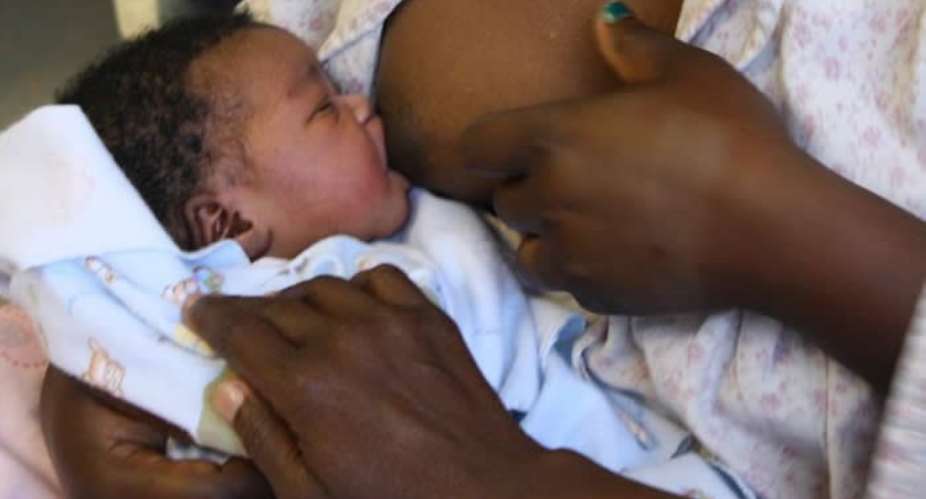On the Occasion of 2017 “Won Dai Abu” Child Rights Festival at Kazigu, Kasena Nankana West District
Pe Chairman, Honourable Ministers, Honourable DCE, Invited Guest, Media, Ladies and Gentlemen.
Let me start by congratulating the Chief and People of the Buru-Kazigu Traditional Area for the continued interest in promoting the rights and well being of the girl-child. I understand, “Wondai Abu” in the Kasem Language means “who is not my child” is a one month period immediately after harvest when all households consider all children as their children and provide for their needs. I commend the Chiefs and People of Kazigu for such as an innovative festival.
We must also recognize, celebrate and support up scaling of initiatives like the Basket of 12 Behaviours championed by Communication for Development (C4D) section and Mother Baby Friendly Health Facility Initiative (MBFHI) project championed by the Health and Nutrition Sections of UNICEF-Ghana with funding from the Bill and Melinda Gates Foundation and the Ghana Health Service.
Several evidence exist to show that, investing in girls education and women empowerment yields the highest dividends for families, communities and nations.
To create an enabling environment for the full realization of girls’ potentials, we must be concerned and take immediate action to address the following facts.
- Delayed breastfeeding increases risk of newborn deaths by up to 80 per cent (UNICEF 2016), this means many more girls are unlikely to live to achieve their dreams.
- About 500,000 newborns – or 1 in 2 in Ghana are not put to the breast within an hour of birth, depriving them of the essential nutrients, antibodies and skin-to-skin bonding with their mother that respectively nourish, protect them from disease and death, and keep them warm, UNICEF (2016).- This means that cognitive and learning abilities of children, particularly girls will be greatly reduced, limited their potential to achieve the needed academic credentials.
- Breast milk is a baby’s first vaccine, the first and best protection they have against illness and disease. The longer breastfeeding is delayed, the higher the risk of death in the first month of life. Delaying breastfeeding by 2-23 hours after birth increases the risk of dying in the first 28 days of life by 40 per cent. Delaying it by 24 hours or more increases that risk to 80 per cent. Ensuring every Newborn is optimally breastfed is a responsibility not only for the mother, but for the society as a whole.
- Feeding babies other liquids or foods is another reason early breastfeeding is delayed. In many communities, it is customary to feed a baby infant formula or water in the first three days of life. When babies are given less nutritious alternatives to breast milk, they breastfeed less often, making it harder for mothers to start and continue breastfeeding. Babies who received no breast milk at all are seven times more likely to die from infections than those who received at least some breast milk in their first six months of life.
- More than 1.2 million children under five don’t have a national identity in Ghana (Every Child’s Birth Right: Inequities and trends in birth registration, UNICEF-2013).
- In Ghana, more than 4 in 10 children are not registered at birth. And even when children are registered, many are still lacking a birth certificate.
- About 15% of the registered children below the age of five do not have a birth certificate. Children who are not registered at birth or without identification documents are at risk of being excluded from accessing education, health care and other basic services. These children are at higher risk of exploitative forms of child labour, trafficking and child marriage. When children are separated from their families, reuniting them and determining their right age is more difficult as a result of the lack of official documentation.
- Birth registration is more than just a right. It is how a society first recognizes and acknowledges a child’s identity and existence and is key to guaranteeing that children are not forgotten, denied their rights or hidden from the progress of their nations.
Today, let us all join hands and say no baby infant formulas and yes to birth registration and exclusion breast feeding as a measure to promote girl child education in Kazigu and beyond. It is possible and starts with you.
Thank you.
Awal Ahmed Kariama
Executive Director





 Whoever participated in the plunder of the state must be held accountable – Jane...
Whoever participated in the plunder of the state must be held accountable – Jane...
 A vote for John and Jane is a vote to pull Ghana from the precipice of destructi...
A vote for John and Jane is a vote to pull Ghana from the precipice of destructi...
 I’ll repay your abiding confidence with loyalty, understanding and a devotion to...
I’ll repay your abiding confidence with loyalty, understanding and a devotion to...
 ‘I’ve learnt deeply useful lessons for the future' — Serwaa Amihere breaks silen...
‘I’ve learnt deeply useful lessons for the future' — Serwaa Amihere breaks silen...
 I’m sorry for the embarrassment – Serwaa Amihere apologises for leaked sex video
I’m sorry for the embarrassment – Serwaa Amihere apologises for leaked sex video
 Dumsor: Matthew Opoku Prempeh not in charge of Energy sector – Minority
Dumsor: Matthew Opoku Prempeh not in charge of Energy sector – Minority
 Adu Boahen’s murder: Police arrest house help who was in possession of deceased’...
Adu Boahen’s murder: Police arrest house help who was in possession of deceased’...
 Akufo-Addo nominates Felicia Attipoe as Tema West MCE
Akufo-Addo nominates Felicia Attipoe as Tema West MCE
 Election 2024: I can't have someone I defeated twice as my successor – Akufo-Add...
Election 2024: I can't have someone I defeated twice as my successor – Akufo-Add...
